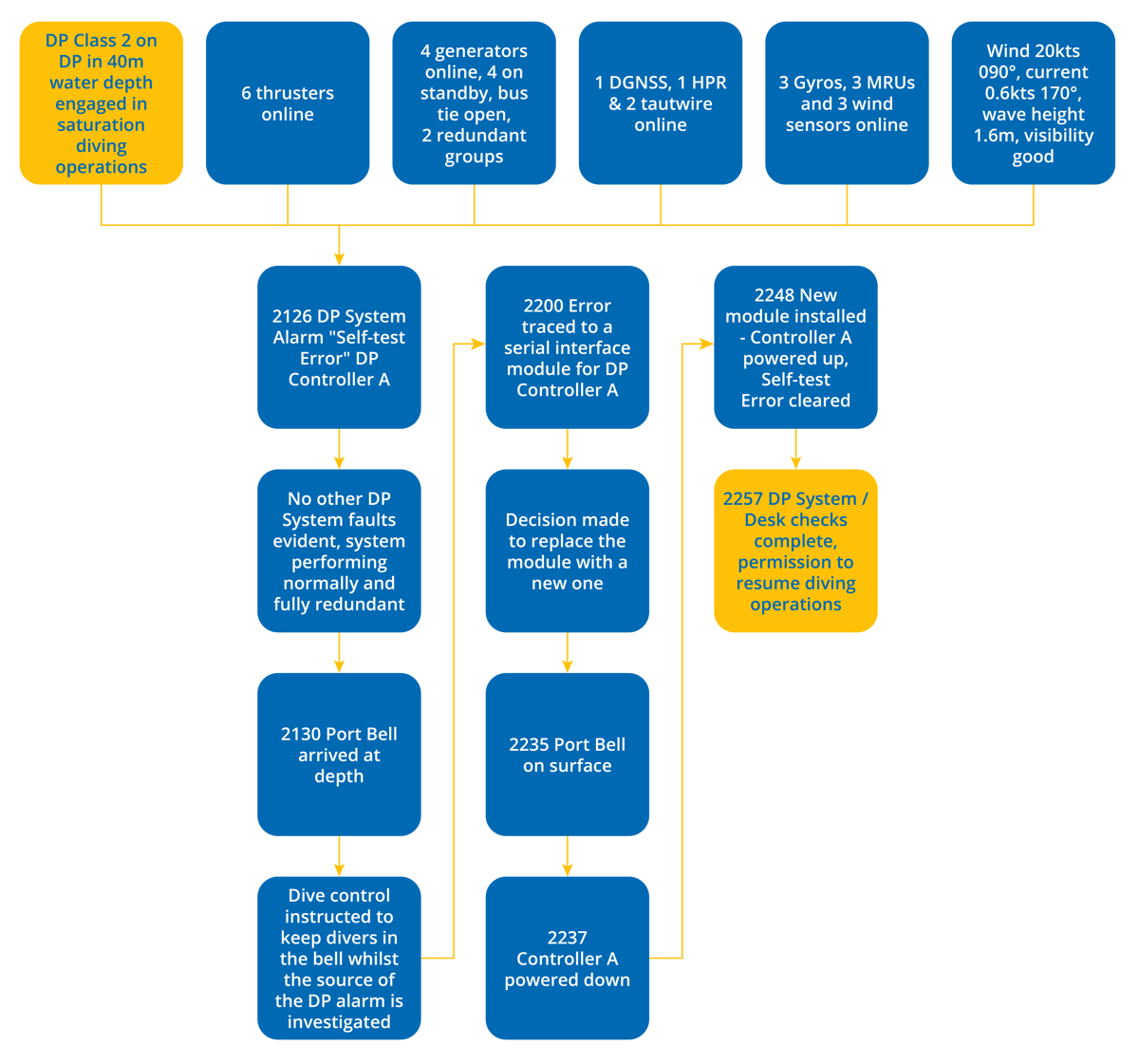Good practice following system self-test alarm
- DP Event
- Published on 29 May 2018
- Generated on 21 February 2026
- DPE 02/18
- 1 minute read
Observation
Jump to:
The decision was made to replace a serial interface module with a new one, dive control was requested to recover the bell whilst this took place.

Comments
The error was traced to a serial interface module for DP Controller A and confirmed that the red error lamp on this module was illuminated.
Whilst indicating an error, the module was still performing correctly in so far as there was no effect with its data feeds.
The decision was made to replace the module with a new one, dive control was requested to recover the bell to surface and hold it there whilst replacement was carried out.
Considerations
- The actions taken were all in accordance with good practice.
- 40m water depth only provides for a small envelope for seabed based position reference systems (PRS).
- In these depths of water, it is advisable to make use of surface based PRS, in this instance DGNSS was used.
Latest DP incidents
-
Simultaneous Operations
A DP Incident report highlighting the importance of maintaining focus during time on the DP desk
DPE 03/25
18 December 2025
Incident
-
Importance of familiarisation and paying attention
The importance of maintaining full attention during the operator's time on the DP desk can never be underestimated, or forgotten
DPE 03/25
18 December 2025
Incident
-
Worst case failure preparedness
Operators must be prepared for worst case failures
DPE 03/25
18 December 2025
Incident
-
Know your settings
This Dynamic Positioning (DP) incident involved a DP equipment class 2 offshore supply vessel (OSV) during loadout operations from a drilling rig.
DPE 03/25
18 December 2025
Incident
-
DP drill scenario
DP emergency drill scenarios are included to assist DP vessel management and DPOs / Engineers and ETOs to conduct DP drills onboard.
DPE 03/25
18 December 2025
Drill Scenario
The case studies and observations above have been compiled from information received by IMCA. All vessel, client, and operational data has been removed from the narrative to ensure anonymity. Case studies are not intended as guidance on the safe conduct of operations, but rather to assist vessel managers, DP operators, and technical crew.
IMCA makes every effort to ensure both the accuracy and reliability of the information, but it is not liable for any guidance and/or recommendation and/or statement herein contained.
Any queries should be directed to DP team at IMCA. Share your DP incidents with IMCA online. Sign-up to receive DP event bulletins straight to your email.